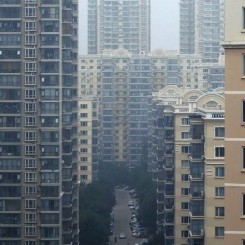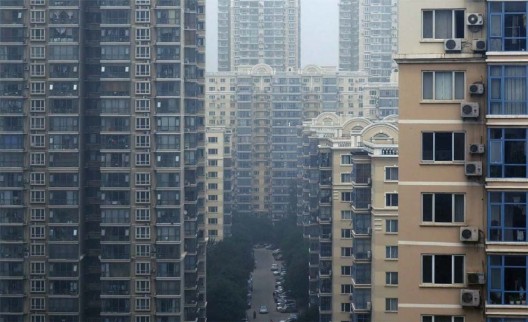Beijing22 is an open, independent, long-term curatorial project, which will investigate the dynamics of Beijing’s urban space in the five years preceding the Olympic Games in 2022. Over this timespan, Beijing22 manifests itself in exhibitions, publications, talks, conferences and other activities. The project thereby archives the various perspectives of artists, curators, academics and journalists from China and abroad.
The core element of Beijing22 is an online forum for artistic and scientific positions and a publicly accessible archive accompanying urban changes in a parallel and discursive manner. The city, cultural policies, the image of Beijing and individual perspectives and testimonies are captured and curated in response to one of the greatest urban developments in recent history. The material helps us to comprehend and reflect on the changing city and contextualize it with reference to a variety of disciplines such as art, architecture, city planning, sociology, philosophy, journalism, psychology etc.
In the last few years mega-sport-events have led increasingly to structural and societal transformations of entire regions. Beijing already witnessed enormous structural changes due to previous mega-events. However, what Beijing will try to achieve in the coming years is on a globally unprecedented scale. The urban plan includes radical structural and political changes spanning mobility, environmental policy, relocations, green innovations and smart city technologies. The national capital region Jing-Jin-Ji (JJJ) will be built by consolidating the Beijing, Tianjin and Hebei provinces, comprising 130 million inhabitants. As part of these structural developments several near term goals have been officially stated including: a smog-free city-center, shared economy transport, infrastructure for electric and fuel cell transportation, a 20 percent reduction in the central district population, and an exponential growth in public transport routs. Beijing22 is convinced that the developments in the greater Beijing area will have a profound impact on both Beijing and urban growth—its conceptualization, design, and execution—globally in the years to come.
Launch
On Saturday October 21st at 2 pm Beijing22 will launch their project platform and two inaugural open calls at Goethe-Institut China. The launch will be accompanied by a presentation of Beijing22’s first resident Ute Adamczewski and a quick-fire discussion with Beijing architect Hao Dong about urban planning, the built environment and their effect on social spaces. The founders of Beijing22 Antonie Angerer, Anna- Viktoria Eschbach and Jannis Schulze will guide through the event.
Open call
The open call for two research grants that will be awarded for the development of scientific, essayistic, journalistic and / or artistic content to contribute to the discussion about city of Beijing and its ongoing transformation will be published that day. The results, such as criticism, journalistic pieces, essays, interviews, text collections, will be published on the Beijing22 channels during the grant period.
For more information: http://en.beijing22.org/view/open-call
Ute Adamczweski
Ute Adamczewski was awarded with the first Beijing22 residency and is a video artist and filmmaker from Germany. Her video project I:conditions addresses the Chinese city as a showcase for radical transformation and observes in a filmic arrangement routines: dwelling, work, leisure. Filmed in the infinite high rise-compounds which represent Beijing, each video reveals the interdependence between the urban environs and a protagonist who lives and works there.
Hao Dong
Hao Dong holds a Bachelor degree in Architecture from the Beijing Institute of Civil Engineering and Architecture, and a Master’s degree in Architecture from Pratt Institute, New York, USA. In 2002, he returned to China and started practicing and teaching after living and studying in the United States for almost 5 years. Besides working in one of the biggest state-owned design enterprises, Beijing Institute of Architectural Design (BIAD) since 2003, Hao Dong co-founded the practice of Crossboundaries, based in Beijing. He is regularly teaching at the Central Academy of Fine Arts (CAFA) and recently also at Tsinghua University, Hao Dong is managing director of the office in Beijing.
Date: Saturday, October 21st, 2017
Place: Goethe-Institut China, Originality Square, 798 Art District, Jiuxianqiao Road 2, Chaoyang District,
Beijing Time: 2 pm
This project is initiated by: Antonie Angerer, Anna-Viktoria Eschbach and Jannis Schulze Supported by the Goethe-Institut China
www.beijing22.org

